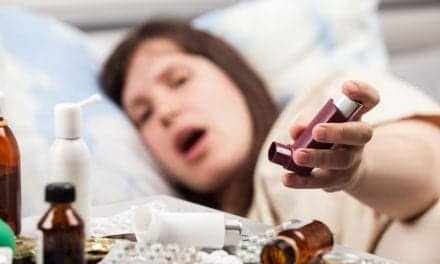Asthmatx Inc, Sunnyvale, Calif, has received US Food and Drug Administration (FDA) approval of its Alair® Bronchial Thermoplasty System. The first device-based asthma treatment approved by the FDA, Alair is indicated for the treatment of severe persistent asthma in patients 18 years and older whose asthma is not well controlled with inhaled corticosteroids and long acting beta agonists.
Bronchial thermoplasty is an outpatient procedure that delivers controlled thermal energy to reduce excess airway smooth muscle that is associated with airway constriction in patients with asthma. According to the company, this treatment has been shown to help patients with severe asthma gain better control over their disease by reducing airway constriction.
FDA approval of Alair was largely based on the results of the AIR2 Trial, a double-blind, randomized study designed to evaluate the safety and effectiveness of bronchial thermoplasty in adult patients with severe asthma. The study was published in the American Journal of Respiratory and Critical Care Medicine in January.
In addition to demonstrating improvement in asthma patients’ quality of life, the trial resulted in a 32% reduction in asthma attacks, 84% reduction in emergency room visits for respiratory symptoms, 73% reduction in hospitalizations for respiratory symptoms, and 66% reduction in days lost from work/school or other daily activities due to asthma.
In the period immediately following treatment, the trial did show an expected transient increase in the frequency and worsening of respiratory-related symptoms, which were of the type expected following bronchoscopy in patients with asthma. Typically, these events occurred within a day of the procedure and resolved on average within 7 days with standard care. In the long-term after treatment, fewer bronchial thermoplasty treated patients reported respiratory adverse effects. The AIR2 trial investigators concluded that the increased risk of adverse events in the short-term following bronchial thermoplasty is outweighed by the benefits, which were shown to persist for at least one year.









